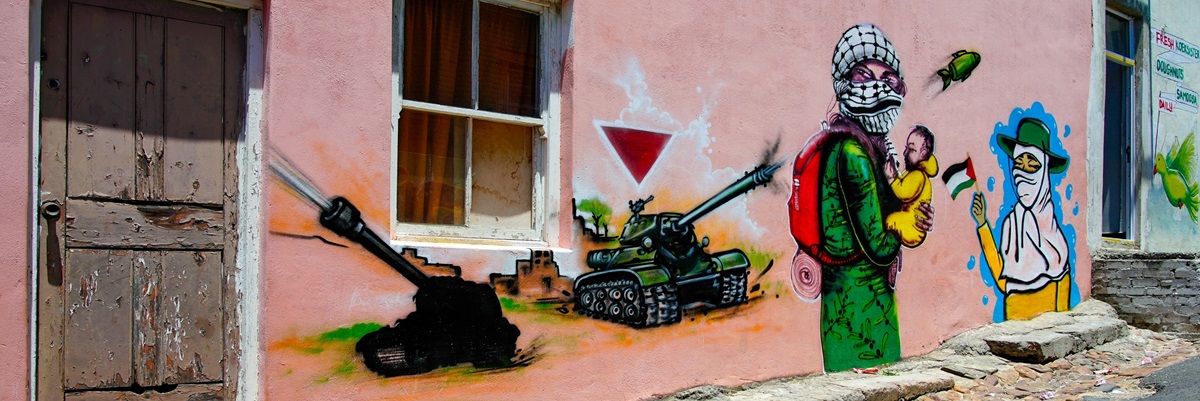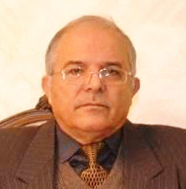Defense & Security
Political Insights (12): South Africa’s Stance and the Impact of Operation al-Aqsa Flood

Image Source : Shutterstock
Subscribe to our weekly newsletters for free
If you want to subscribe to World & New World Newsletter, please enter
your e-mail
Defense & Security

Image Source : Shutterstock
First Published in: Aug.22,2024
Oct.14, 2024
Introduction
The historical legacy of the Israeli-South African relationship has contributed to the current ambiguity between the two parties. During the early stages, South Africa’s political landscape was divided between a regime that pursued racial discrimination and viewed Israel as an ally from 1948 to 1994. This relationship intensified after the Arab-Israeli War of 1967 and continued to develop rapidly until 1987, when international efforts to isolate South Africa’s apartheid regime began. Over these two decades, Israeli-South African relations expanded across various fields, including cooperation on the Israeli nuclear project.
With the collapse of the apartheid regime and the victory of the nationalist forces led by the African National Congress (ANC) in 1994, South Africa’s relationship with Israel began to diverge without completely rescinding its recognition of Israel as a state. At that time, Israel maintained an embassy in Pretoria and a commercial office in Johannesburg, while South Africa had an embassy in Tel Aviv. There were also reciprocal visits between officials of the two countries. Notably, South Africa’s first president, Nelson Mandela, visited Israel in 1999, though he had previously hosted Palestine Liberation Organization (PLO) Chairman Yasir ‘Arafat in South Africa a year earlier.
Current Nature of the Relationship
The Israeli-South African relationship is characterized by South Africa’s support for Palestinian statehood in the 1967 occupied territories, while still maintaining recognition of Israel despite occasional strains. These strains have included several notable events: the recall of the South African ambassador in 2010, the operation of the Boycott, Divestment, Sanctions (BDS) Movement in South Africa since 2012, the hosting of a Hamas delegation in 2015, the withdrawal of the South African ambassador and embassy staff from Israel in November 2023 following the first month of Operation al-Aqsa Flood, and finally, South Africa’s filing of a case with the International Court of Justice (ICJ) accusing Israel of “genocide of the Palestinian people” in December 2023.
Major Changes Following Operation al-Aqsa Flood
In the aftermath of Operation al-Aqsa flood, the relationship between Israel and South Africa experienced two key developments that will shape the future of their relationship:
1. The results of the June 2024 elections in South Africa, which saw 52 parties contesting, with 18 parties securing seats in parliament. Notably, the outcome of these elections highlights:
a. The ANC, which has been the strongest advocate for the Palestine issue, has diminished in influence. Comparing its seat count from the 2019 to the 2024 elections, the number decreased from 230 to 159 seats, representing a loss of 71 seats, or 31% of its total voting power.
b. This outcome suggests that the ANC will no longer be able to unilaterally pass its decisions, particularly in foreign policy, as it has been able to since 1994, when it enjoyed a comfortable majority to advance its governmental decisions.
c. To further complicate the situation, other political forces that, to varying extents, opposed the ANC’s stance on the repercussions of Operation al-Aqsa Flood have made significant progress and are now part of a national unity government. These forces include:
• The Democratic Alliance (DA), which primarily represents white communities and supports Israel, increased its seats from 84 to 87 between 2019 and 2024.
• The Inkatha Freedom Party (IFP), representing Zulu communities, grew its representation from 14 to 17 seats.
• The Patriotic Alliance, which declared its support for Israel following Operation al-Aqsa Flood, secured 8 seats.
These election results have diminished the ANC’s ability to monopolize decision-making, placing it in a difficult position as it balances its commitment to Palestine with its interest in maintaining the government coalition.
2. A growing number of countries have joined South Africa in bringing the genocide case against Israel before the ICJ under Articles 62 and 63 of the Court’s Statute. The following countries have formally requested to join the case: Nicaragua (February 8), Belgium (March 11), Colombia (April 5), Turkey (May 1), and Libya (May 10). Additionally, several countries have expressed their intention to join, including Egypt (May 12), Maldives (May 13), Mexico (May 24), Ireland (May 28), Chile (June 2), Spain (June 6), not to mention Palestine (June 3), and Cuba (June 22). However, the court has not yet ruled on any of these requests.
The growing number of accession requests strengthens the credibility of South Africa’s case, reflecting the increasing international criticism of Israel.
Future Role
South Africa is a significant center of influence on the African continent, ranking sixth in terms of population. However, its internal situation will play a critical role in determining its ability to maintain its political stance on the Middle Eastern conflict. The structure of the coalition government—led by President Cyril Ramaphosa of the ANC, with a deputy from the DA—complicates decision-making, as previously noted. Additionally, traditional power dynamics suggest a country with diminishing regional and international influence. Beyond South Africa’s moral authority, rooted in its history of overcoming apartheid, the country faces considerable challenges. It ranks first globally in the Gini index [Gini index measures the extent to which the distribution of income or consumption among individuals or households within an economy deviates from a perfectly equal distribution]. Furthermore, its score of –0.72 on the Political Stability Index, coupled with a 33.55% unemployment rate, undermine its capacity to exert influence.
An essential facet of South Africa’s international diplomacy is its efforts to shape global rules, aiming to achieve a “soft balance” with dominant regional and international powers. South Africa has effectively leveraged its diplomatic resources to strengthen its ties to various international networks and to reshape the global framework to its advantage. This success is exemplified by its early membership in the BRICS group, its active role in conflict resolution in Africa—having contributed to the settlement of nine African conflicts—and its efforts to enhance the African Union’s role. Notably, South Africa outpaced many global powers in drafting resolutions adopted by the UN General Assembly between 1994 and 2023. This achievement is reflected in South Africa’s rise on the political globalization index, moving from approximately 47 points to about 89 points between 1994 and 2022. Additionally, South Africa’s leadership in raising the issue of “genocide” against Israel and the influx of countries from all continents seeking to align with South Africa further underscores this diplomatic trend, which the Palestinian resistance should strategically leverage.
Conclusion
South Africa will continue to support the Palestine issue in the foreseeable future, though this support may be less effective due to the recent election results. However, it is crucial to strengthen ties with the ruling ANC and leverage its alliance with Al Jama-Ah Islamic party (which holds two seats) and other pro-Palestine parties, especially in advising on managing relations with South Africa. Additionally, it is important to capitalize on South Africa’s moral standing and its advancements in political globalization indicators.
First published in :

Ph.D. Walid ‘Abd al-Hay, is a professor of Political Sciences at Yarmouk University, Jordan, and the former head of that Department. He obtained his Ph.D. degree in Political Sciences from Cairo University and had taught at several universities. He is a member of the board of trustees of al-Zaytoonah University of Jordan, the National Center For Human Rights (NCHR) in Jordan, and Irbid National University. ‘Abd al-Hay was a consultant at the Higher Media Council and the Board of Grievances in Jordan. He published 37 books mostly focused on futuristic studies in theory and application. His Arabic books include: Futures Studies in International Relations, Futures Studies in Political Sciences, Futures Studies Methods and Their Applications in the Arab World, The Futuristic Status of China in the International Power Scale 1978–2010 and Iran: The Future of Regional Status 2020 (2010). He has translated many books and studies from English into Arabic, and published more than 120 researches in refereed academic journals.
Dr. ‘Abd al-Hay is a frequent contributor to al-Zaytouna’s publications. He is the writer of the chapter “The Palestine Issue and the International Situation” of The Palestine Strategic Report series since 2006 (11 volumes, covering the period 2006–2021). A frequent paper presenter at al-Zaytouna’s conferences, trainer, and writer of several strategic assessments.
Unlock articles by signing up or logging in.
Become a member for unrestricted reading!